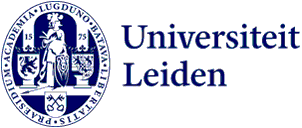
The law is constantly evolving: Mayor Heijkoop visits Leiden Law School
On 7 July, the Mayor of Leiden, Peter Heijkoop, visited Leiden Law School. During his visit, he learned about the faculty’s commitment to advancing research and education while contributing to tackling the challenges faced by society.
Mayor Heijkoop was welcomed by Annetje Ottow, President of Leiden University’s Executive Board. Dean Suzan Stoter then addressed the Mayor and others present in the Moot Court room. Suzan underlined the importance of the faculty in anticipating and responding to changes in society. Leiden and Leiden Law School share a long and distinguished past – 450 years of history to be exact. This visit, however, looked to the future: how does our research and education respond to today’s challenges in society?
-
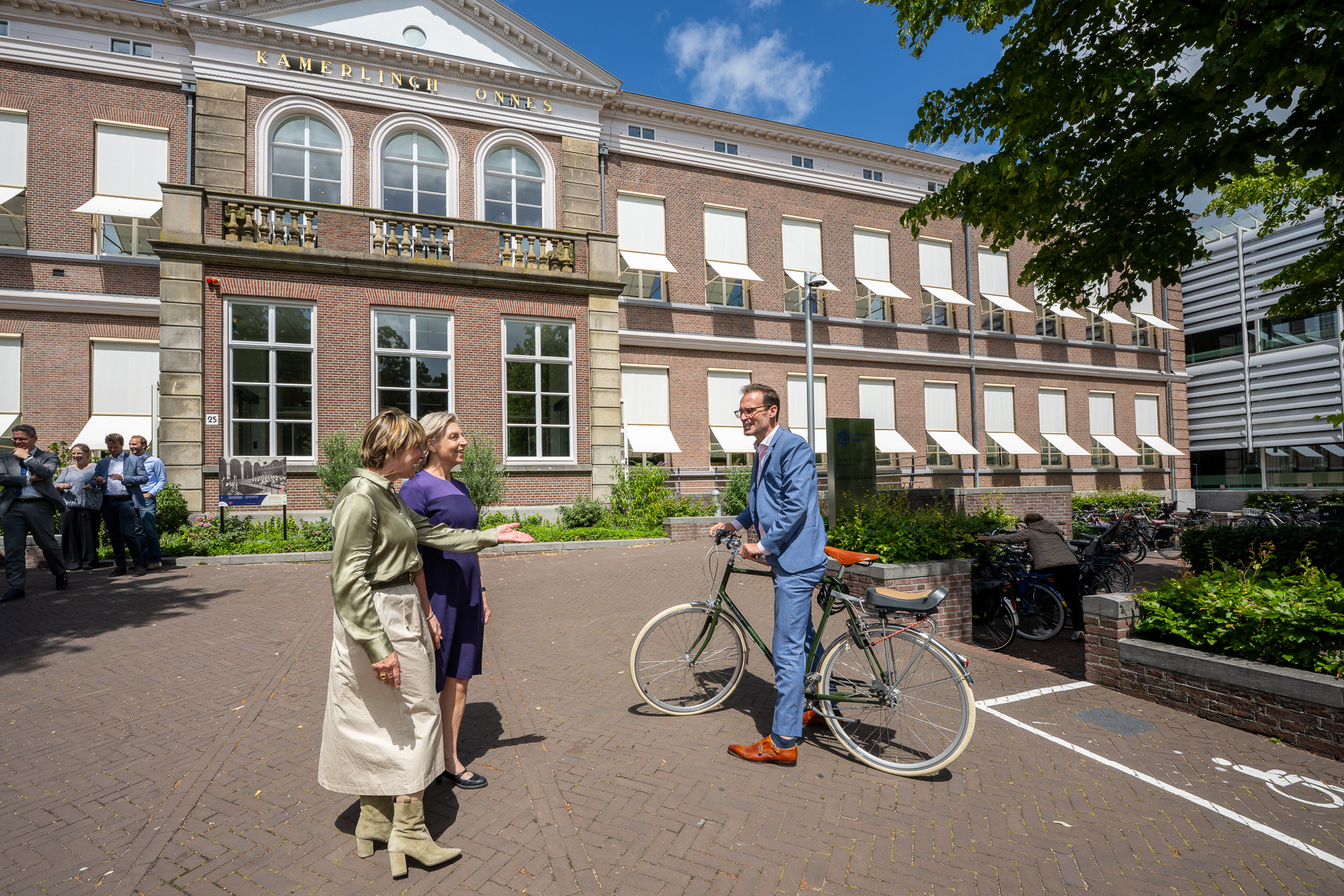
Mayor Peter Heijkoop arrives at the KOG Building. -
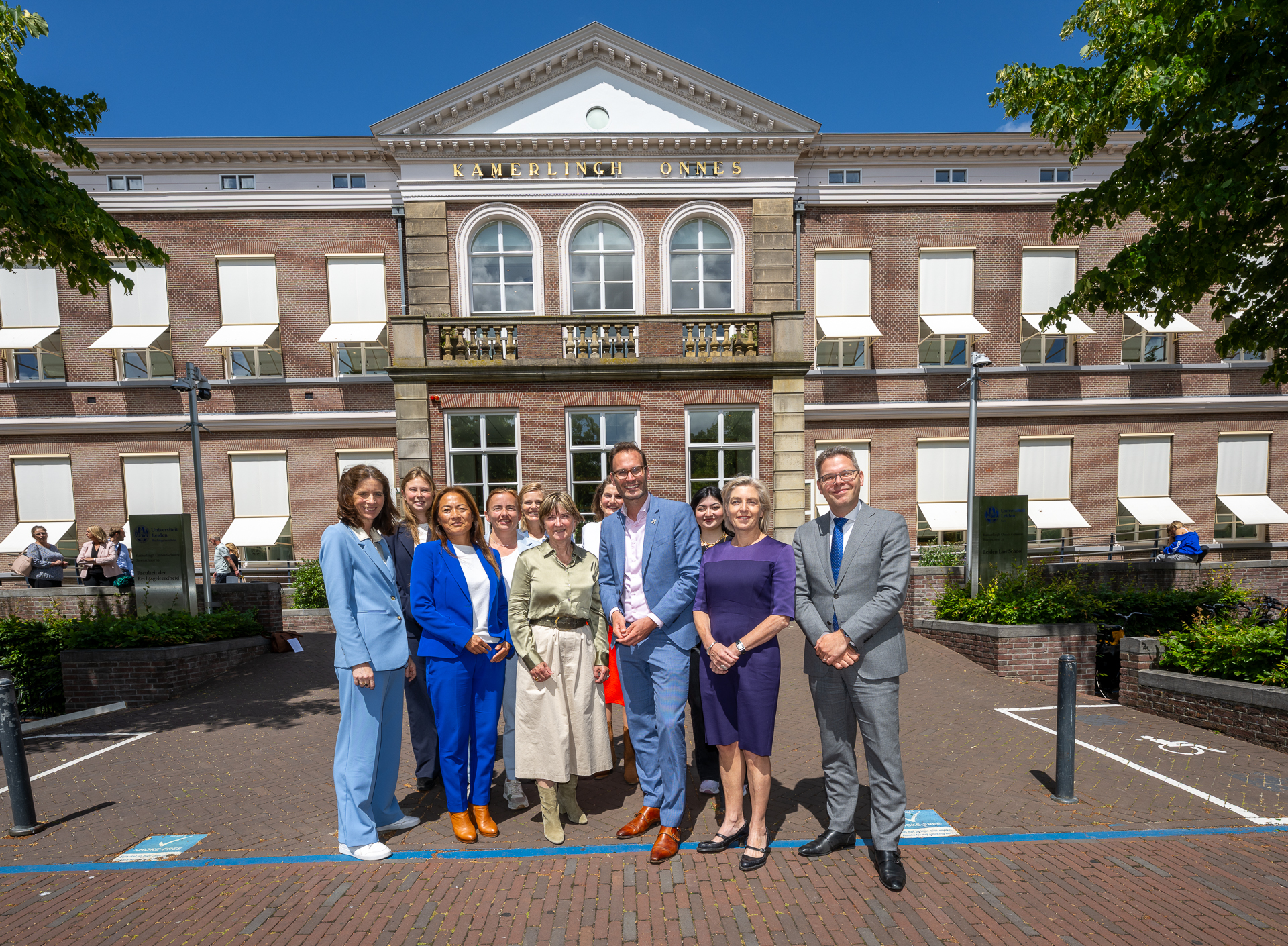
Group photo with Dean Suzan Stoter, Annetje Ottow, Vice Dean Jan Crijns and speakers. -
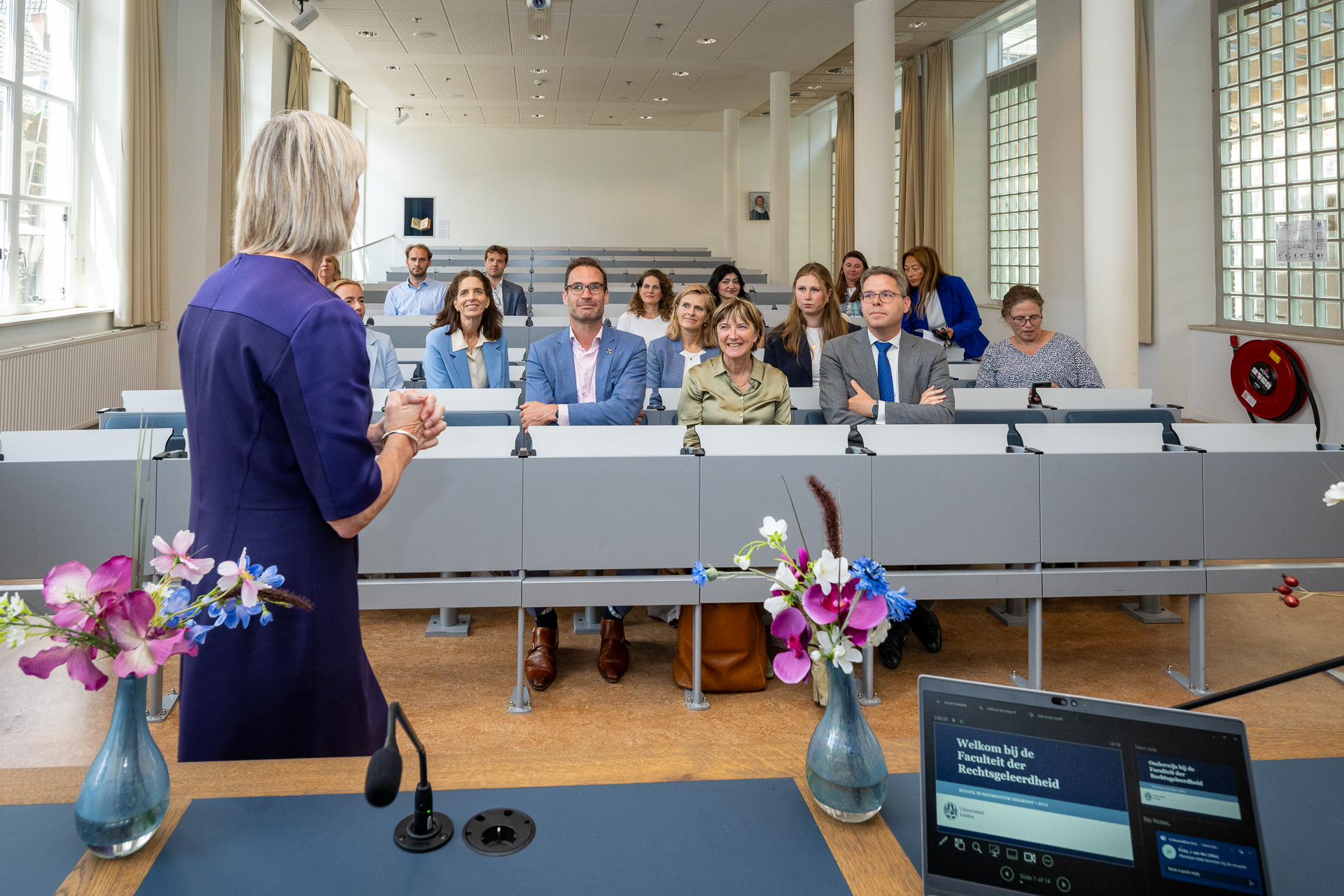
Suzan Stoter addresses Mayor Peter Heijkoop and other speakers. -
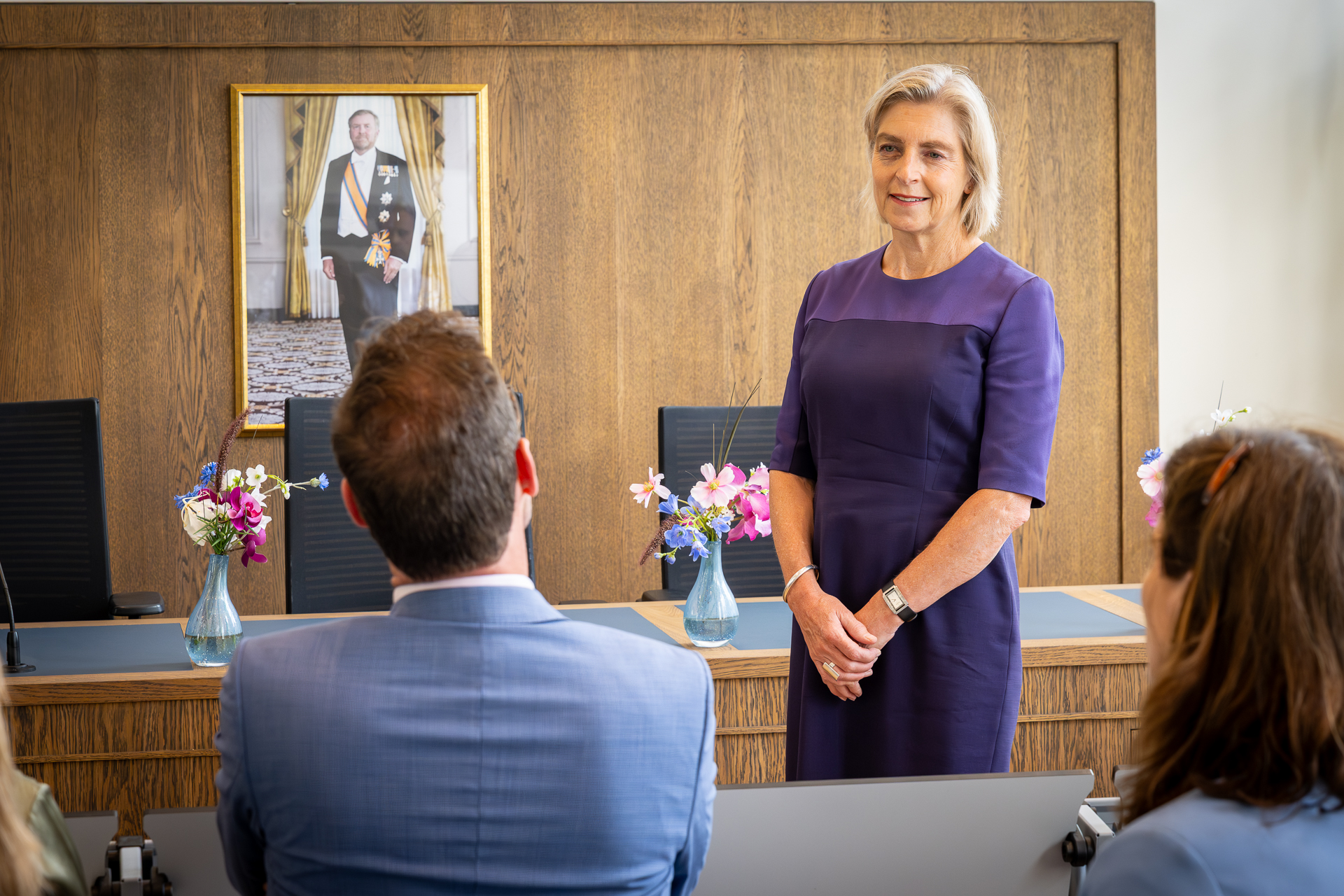
Suzan Stoter answers questions from Mayor Peter Heijkoop. -
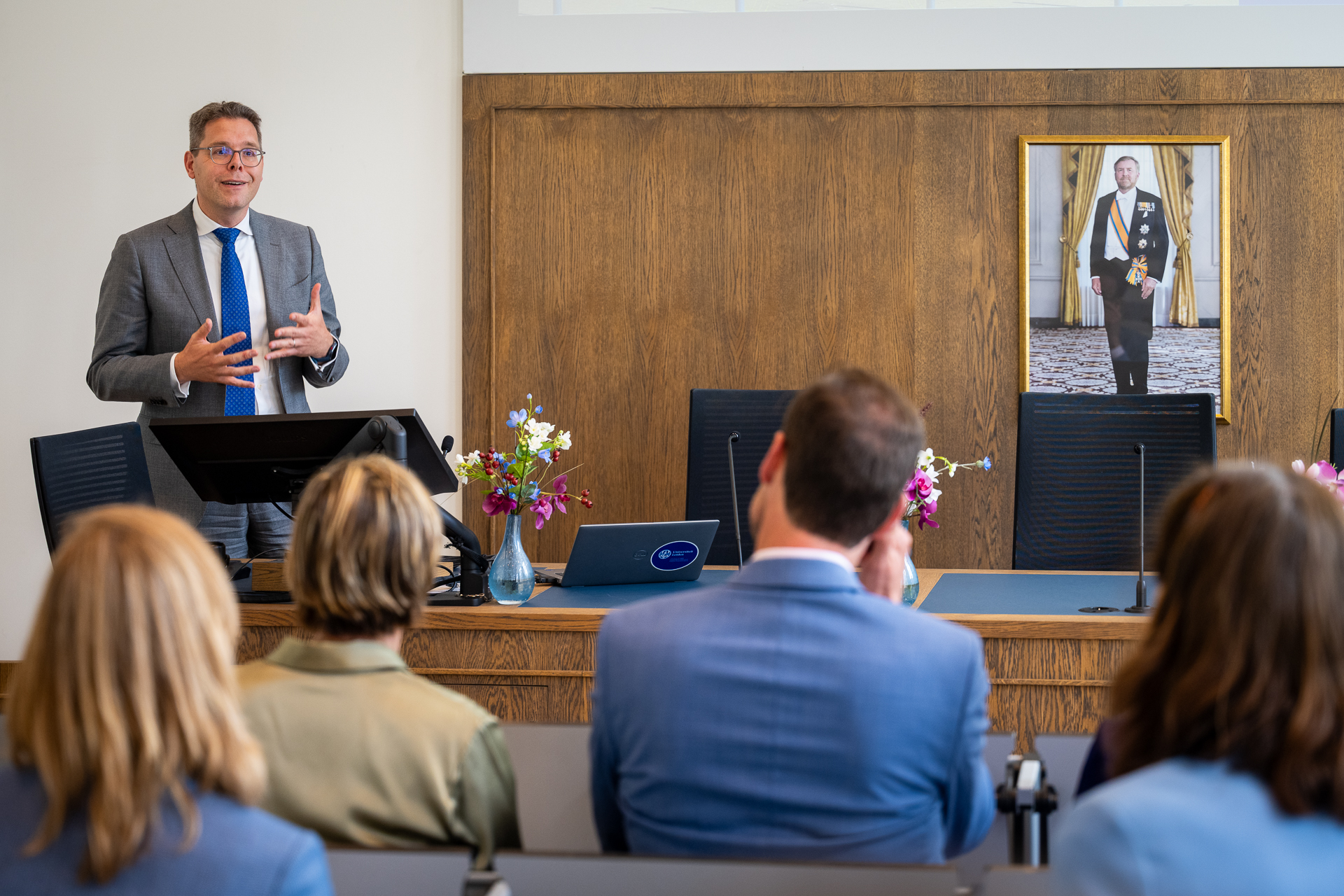
Jan Crijns talks about innovation and reform in education at the Leiden Law School. -
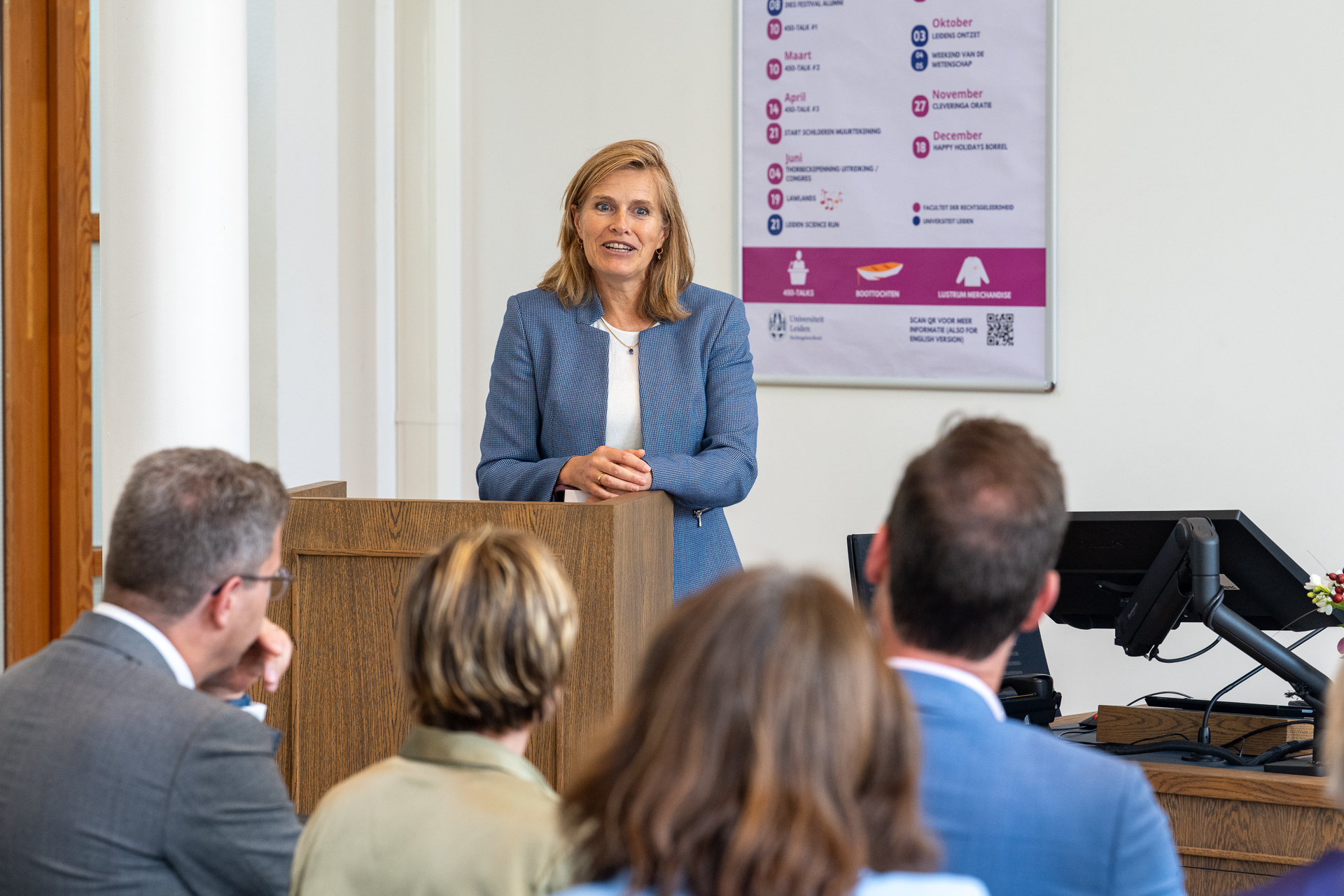
Esther Kentin talks about initiatives around sustainability and environmental law at the Leiden Law School. -
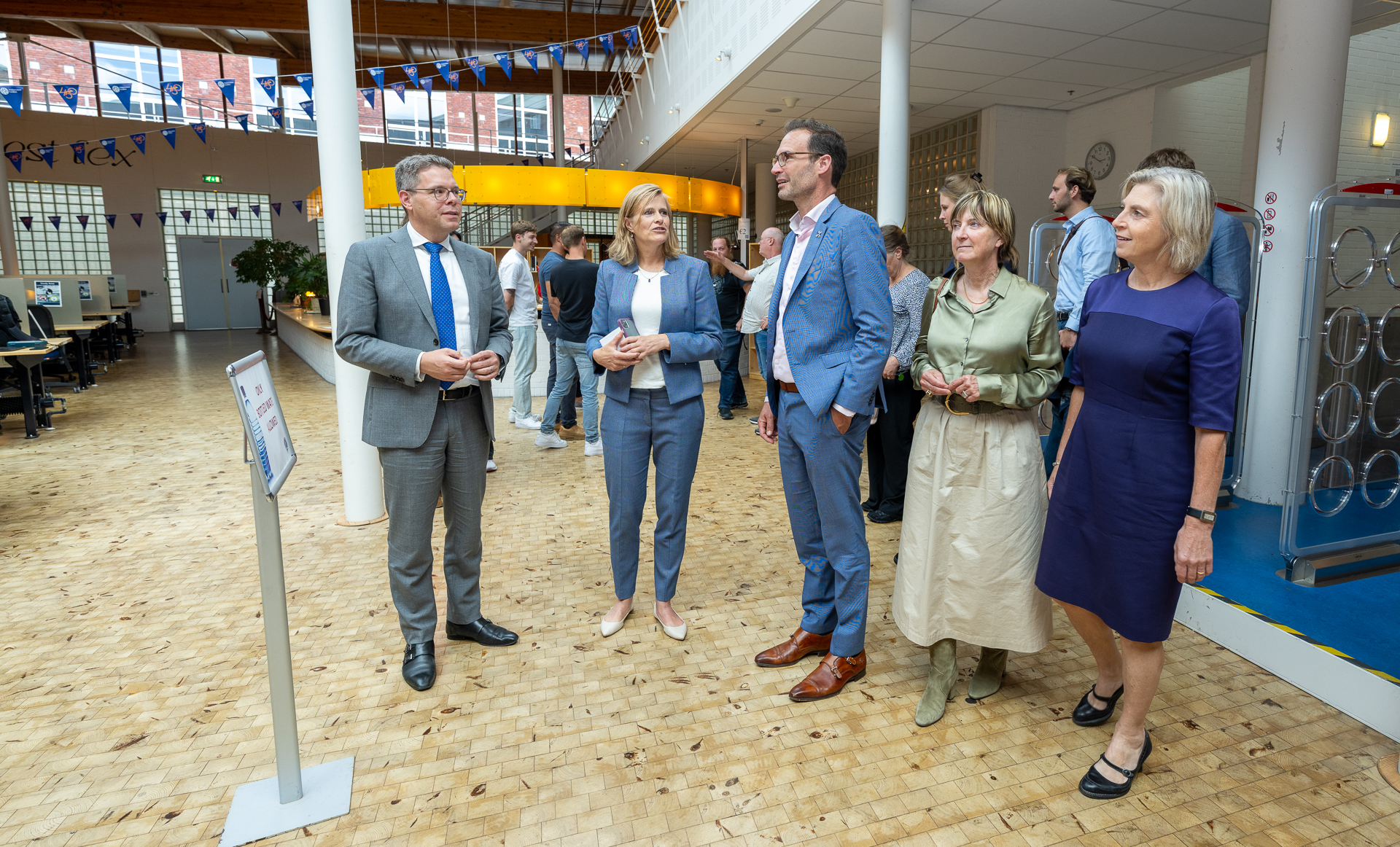
Mayor Peter Heijkoop gets a tour of the library. -
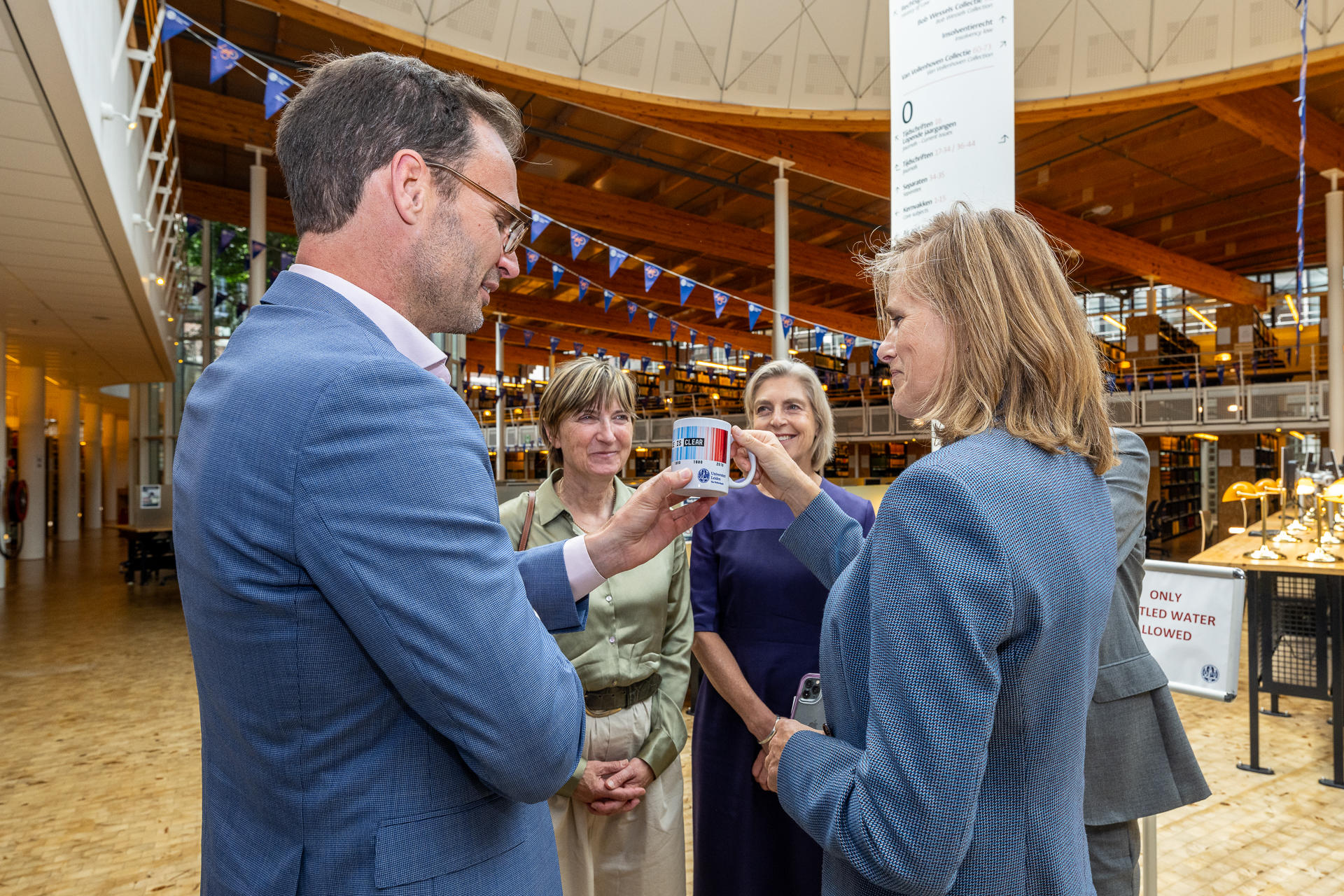
Esther Kentin tells Peter Heijkoop more about sustainability initiatives at the library. -
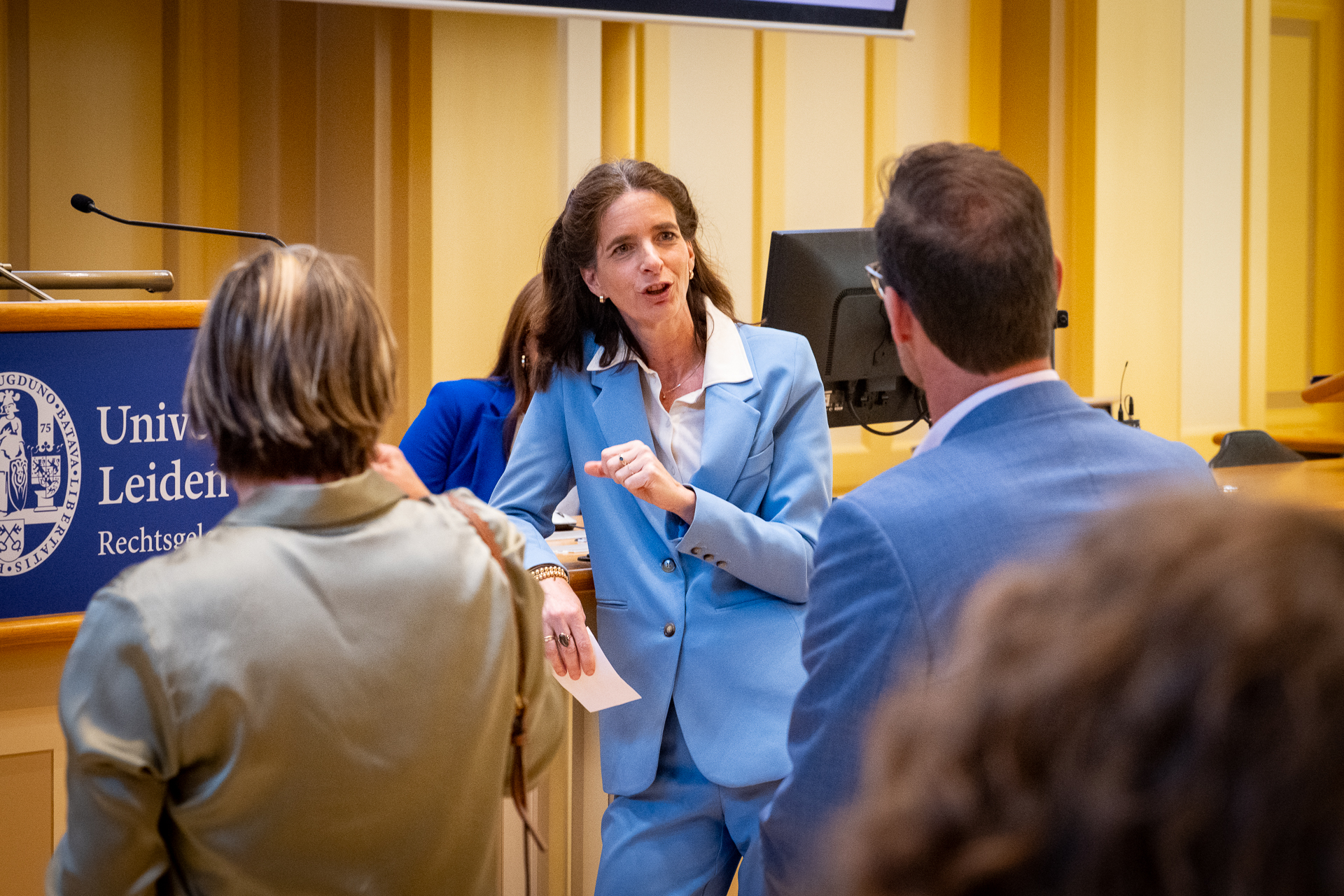
Mariëlle Bruning talks about her Department of Child Law and Health Law in the Lorentz Lecture Hall. -
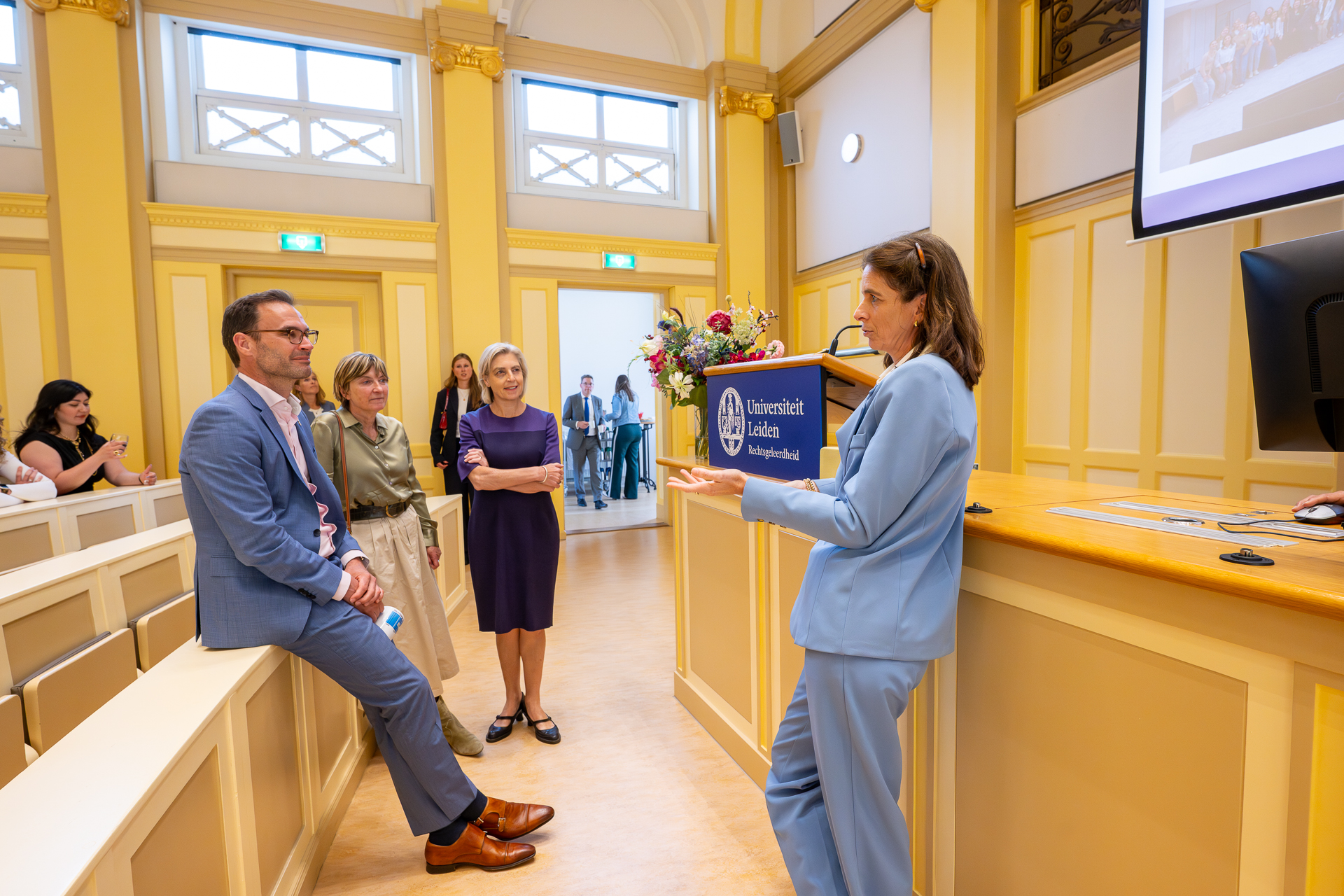
Mariëlle Bruning talks about the research being conducted into children placed in care. -
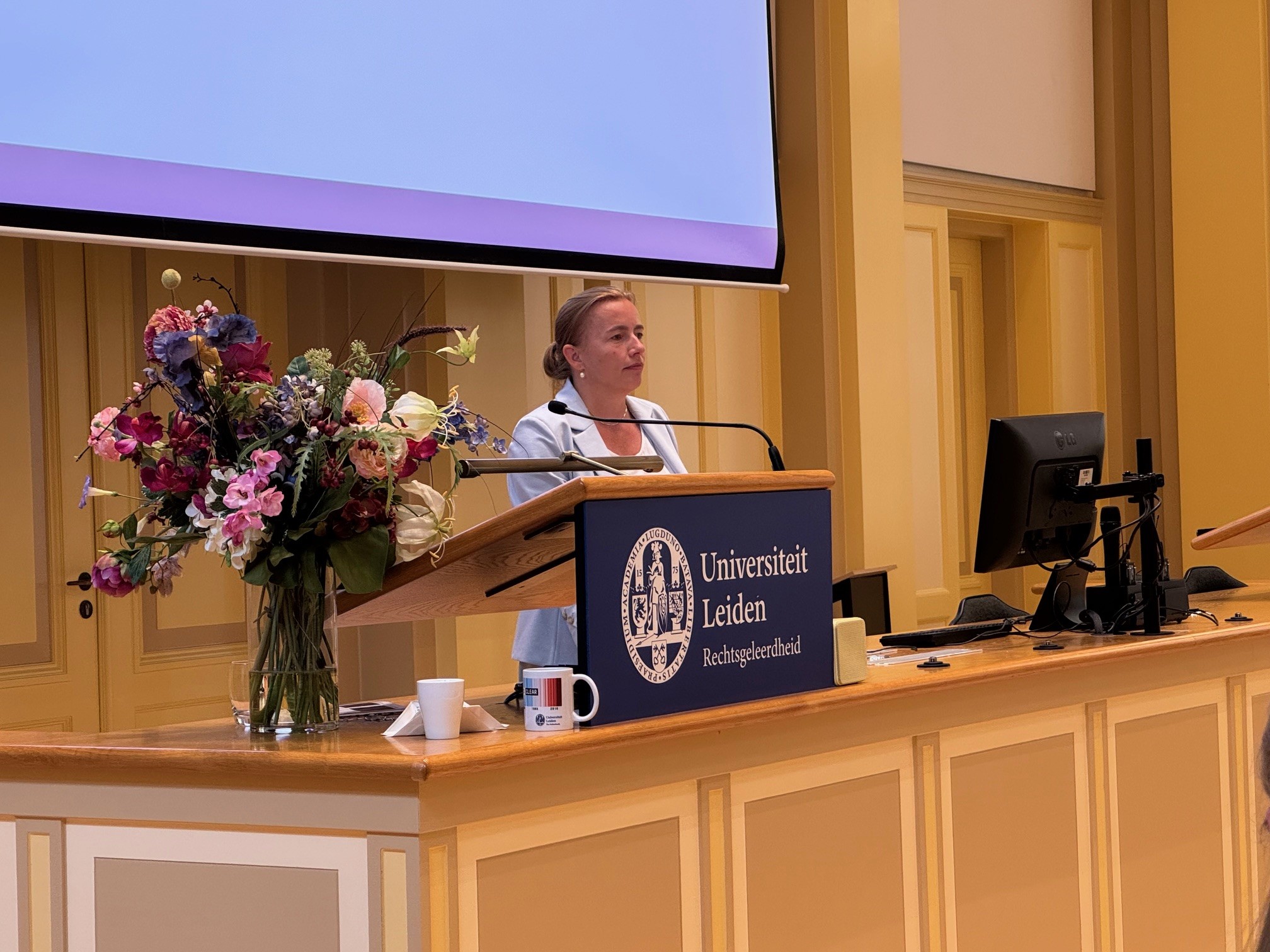
Sigrid van Wingerden talks about research into criminology in Leiden. -
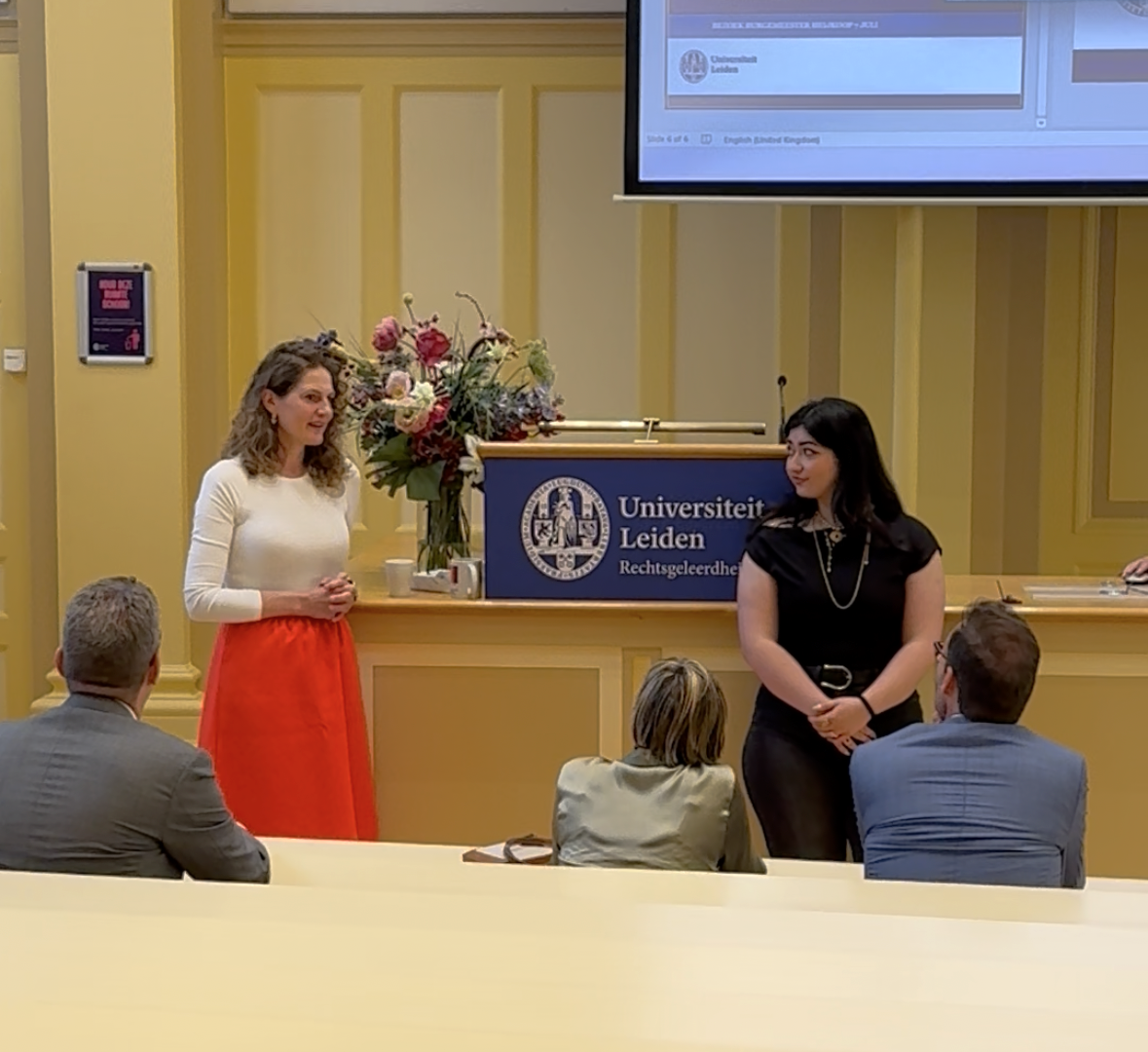
Student Maryam Abbasova tells about her volunteering work at the Vrouwenrechtswinkel.
New degree programmes
The tour began in the Grotius Lecture Hall. This is a unique venue where students are trained to argue complex legal cases as part of the Moot Court course. In this way, students learn about the practical side of the profession, but also how to deal with the complexity and responsibilities inherent in the legal professions.
Jan Crijns, Vice Dean and Professor of Criminal and Criminal Procedural Law, spoke about the faculty’s vision on teaching and our academic programmes. In particular, he explained more about the new degree programmes recently launched by the faculty: the bachelor’s programmes Economie & Samenleving (Economics and Society) and Cybersecurity & Cybercrime, and the master’s programme Economie van de Publieke Sector (Public Sector Economics). These degree programmes are tailored to address societal concerns and the needs of the labour market. Students are equipped with the knowledge and skills they will need to contribute to solutions for today’s problems.
Future-proof education and research
Two major themes that will partly determine the future were also considered: the environment and children’s rights. In her role as a lecturer in international environmental law, Esther Kentin explained more about the Leiden Advocacy Project on Plastic and other ways to address current issues.
The tour then proceeded to the Lorentz Lecture Hall where Mariëlle Bruning, Professor of Children and the Law, spoke about the Department of Child Law and Health Law. She explained, among other things, what attracts students to the department, such as the Advanced Masters in International Children’s Rights. She also talked about the research being conducted into children placed in care and the related alarming statistics.
The faculty is committed to advancing research and teaching in these areas as these are topics that are essential for a sustainable, healthy and just sotalciety. Mayor Heijkoop was also shown how we are working towards future-proof education: students who are equipped to tackle tomorrow’s problems and offer solutions.
Active involvement of students
Mayor Heijkoop saw with his own eyes how students, besides their studies, are already playing an active and important role in legal matters within the city of Leiden. Maryam Abbasova explained about her work at the legal aid centre Vrouwenrechtswinkel. Maryam and her fellow students help women by giving them free legal advice in areas including employment law, personal and family law, and immigration law. Maryam explained how her role brings her into contact with women from all walks of life, who, for various reasons, have poorer access to legal support. Malou Sint Nicolaas, Project Leader at the Vrouwenrechtswinkel, gave more information about the project’s mission and how students can apply what they learn in class to people who need their help the most.
Criminology and subversive crime
To end the visit, Sigrid van Wingerden, Associate Professor of Criminology, spoke about the collaborations with the municipality of Leiden as part of the degree programme in Criminology. She mentioned specific projects that are directly relevant when it comes to the current challenges the city is facing. She also spoke about the specialisation course Ondermijning (subversive crime) which for some years now has been successfully organised by our faculty together with the municipality of Leiden and the Regional Information and Expertise Centre The Hague. This course takes outcomes from research conducted at our faculty and translates them to the realities of daily life.
The visit by Mayor Heijkoop was an opportunity to show how each day the law faculty and its staff and students are working towards achieving a just and future-proof society. After all, the law is constantly evolving – and so is this faculty.
Faculty research focus areas
Four research focus areas have been developed for research conducted at Leiden Law School. These focus areas provide direction in our research:
- Sustainability and law, how legal frameworks contribute to protecting the environment and a sustainable society;
- Technology, law and justice, the regulation of technologies (such as AI) with attention to fairness;
- Trust in institutions, strengthening the trust of citizens in the judiciary and public authorities;
- Law and empirical research, empirical-legal research that examines the effect of the law in practice.
